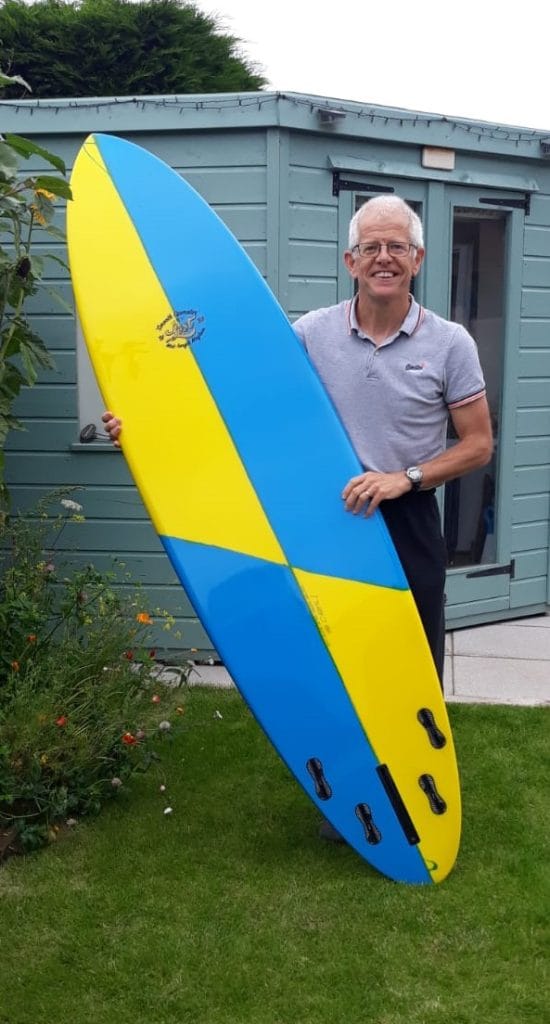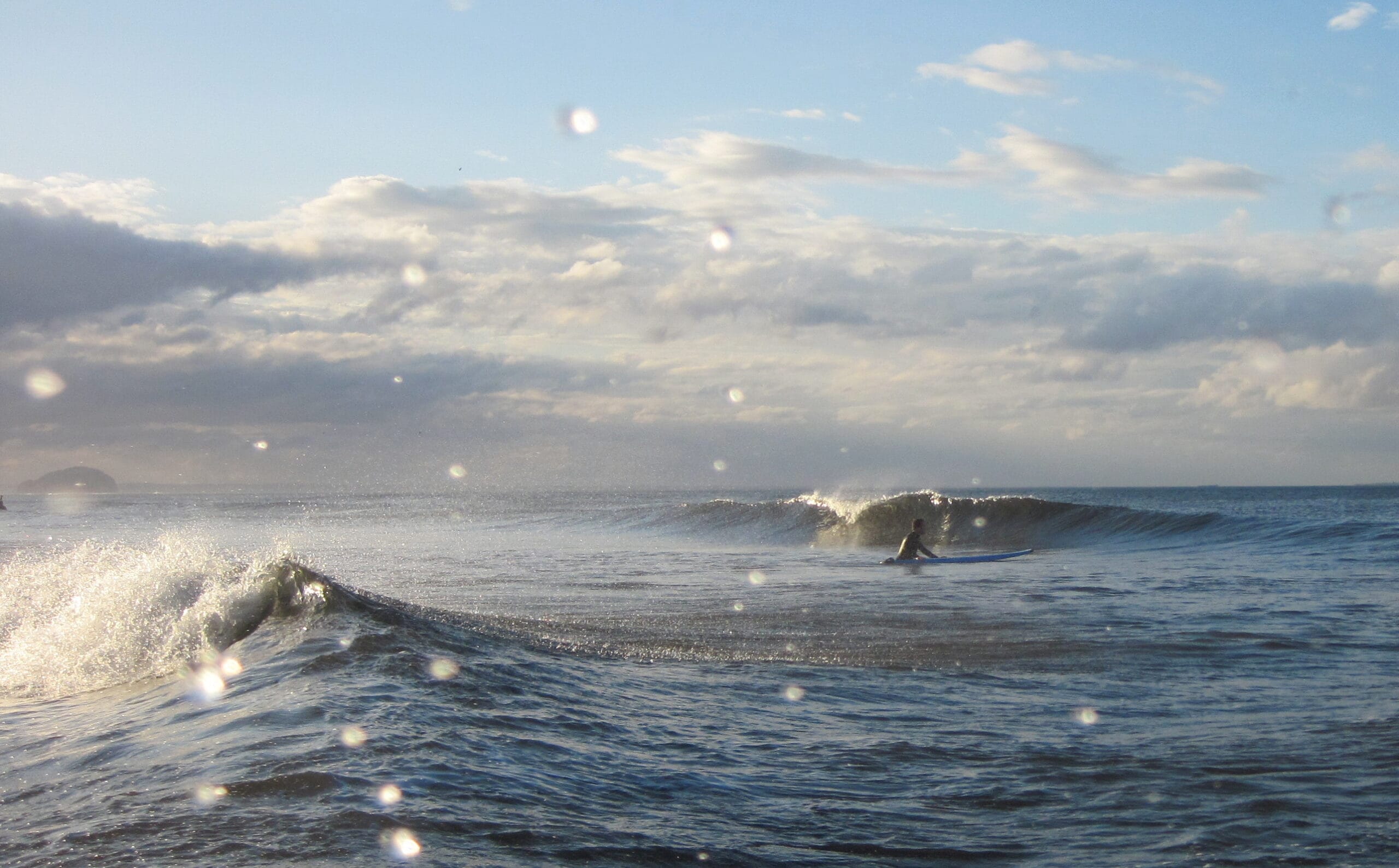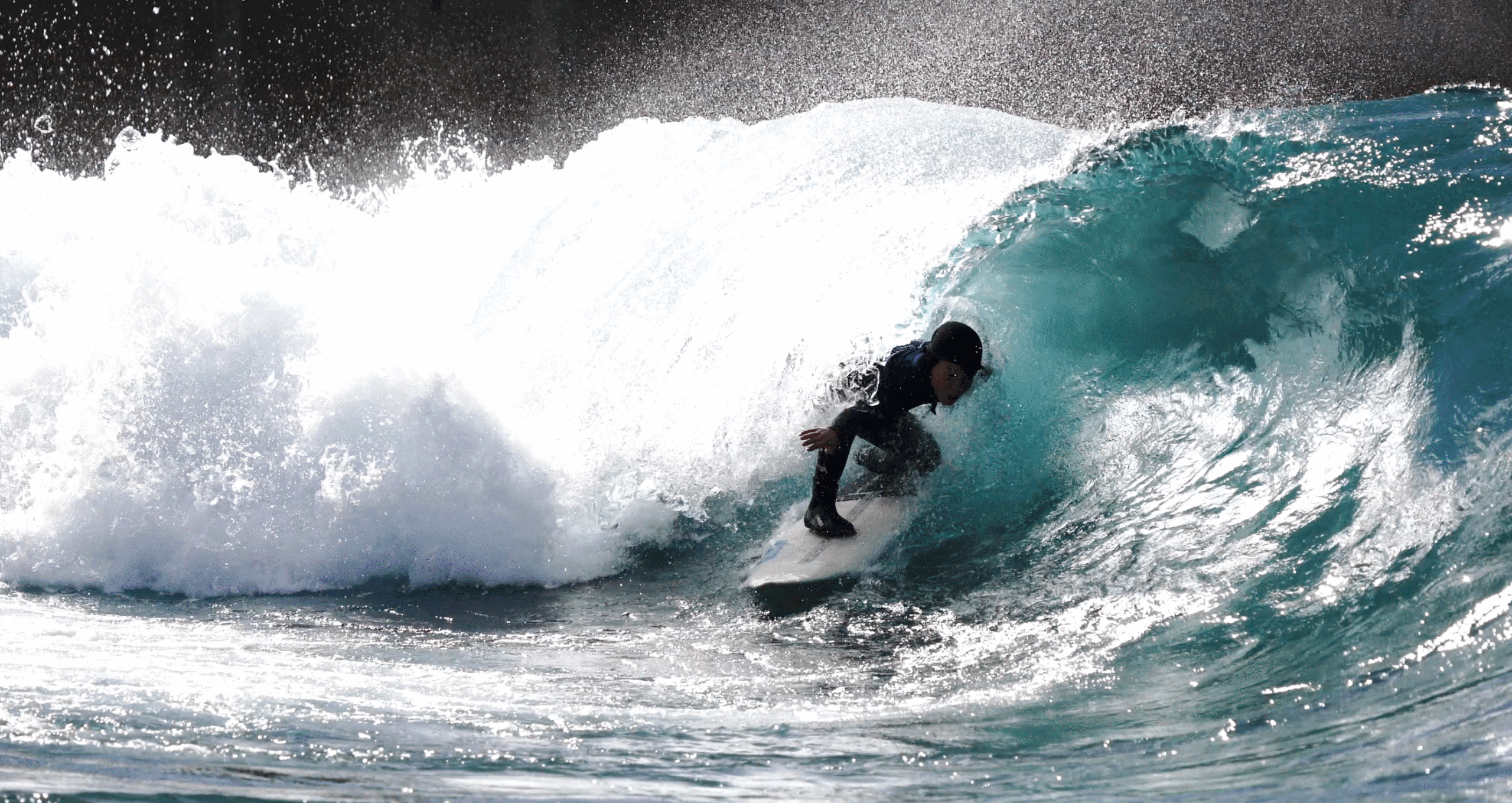Can you surf at sixty? An interview with Chris Robison
Surfers the world over have one book that they would hold up as the go-to, that is Barbarian Days by William Finnegan. As interesting as the stories he tells are (and interesting would be an understatement), there is one thing he wrote that has stayed with me more than anything else. He claims that you have to start surfing before the age of fourteen to be any good at it. Fourteen!
As I don’t think many 13 year olds read 400 page autobiographies, I can’t imagine that I was the only one disheartened by this insight. I began to question whether he was on to something here – Am I too old to surf?
Surfing brings a lot to peoples lives; physical exercise, community building opportunities, adrenaline filled adventures, the list goes on. But it can be an intimidating sport to start getting into as an adult, and we get a lot of people getting in touch with us to ask if it is the right sport for them.
We thought who best to answer some of these queries than our very own surf instructor Chris Robison. At the age of 62 Chris has been surfing for what is coming up to 40 years. We sat down with him over a coffee and his favourite Turkish delight to ask him some questions.
Q: How did you first get into surfing, how old were you?
I was on holiday in Cornwall, it was 1984 and I would have been 23. I was with my brother and a friend and we just decided to give it a go. The very first mistake I made was not taking a lesson, we just hired boards and headed straight in, we had no idea what we were doing. As we were all runners and very fit at the time, we thought nothing of it, but our lack of knowledge was evident. I always had a love of the sea, at the time I was in the Royal Navy, I was always comfortable in open water. What I didn’t know is about waves, how the environment impacts that, how the sea works close to shore. I have realised that you need to learn this early doors to stand a good chance out there.
However, I just continued heading out on my own, with friends, with my sons when they were old enough, I even bought a board – a fiberglass performance board, which I would later find out was completely inappropriate for my skill level. I started surfing regularly when living in Cornwall in 1989 and have surfed since.
I first came across Coast to Coast surf school in 2005 in an article in the newspaper. I came over with my sons for a lesson and have not looked back. Since then I have volunteered for the development squad, helped run tours and training sessions and in 2020 qualified to teach surfing which I now do on a part-time basis.
Q: What is it that you feel surfing brings to your life?
I like the fact it is individual, you get out of it what you put in. I love being by the sea, it keeps me fit, helps with my mental and physical health. One of the reasons I enjoyed running (note: Chris was a commonwealth runner in his day, a story we will be returning to in another blog post) is that you get out of it what you put in, there is no luck involved, it’s just you. Of course there is an element of luck in surfing with waves and timing etc. but it’s the same thing, it is the same surf for everyone, and it’s just you and the sea.
But none of those are the reason I surf. There is just something inexplicable about surfing. If I couldn’t surf I would feel like there was something missing. I wouldn’t want to make this spiritual or use surfing language, you will absolutely never hear me use the word “stoked”, but there is something there. If you are in the ocean and there are nice clean waves when you are surfing, there is no better place to be.
Q: What are some of the benefits being an older surfer brings?
Being older means you can build up a knowledge of the environment you are in, especially if you have more experience in the water. Some people think you might garner more respect for being an older surfer but this isn’t true, when you are in a lineup (a waiting line for a wave) you are all equal, no-one is treated differently. The sea doesn’t know who you are, it doesn’t respect age, the waves just keep coming so you have to be prepared.
Q: What are some of the challenges with being an older surfer?
Flexibility is difficult, you absolutely have to look after yourself, have to work on flexibility and fitness when not in the sea. The sea is not inherently dangerous, it is dangerous, however, if you don’t understand it and head out unprepared.
Surfing brings a lot of jeopardy as you head out into bigger waves once you have more experience, there are no breaks, the waves just keep on coming, you’ve got to be prepared for that.
Q: What would your advice be for someone getting into surfing?
Learn from my mistakes, take some lessons! Before that, you of course need a degree of fitness which is hard to quantify or put into words. We would suggest speaking to your medical advisors if you are unsure, or even getting in touch with the surf school to chat it through. I would say the absolute bare minimum is that you can swim and that you are not scared of being in the sea.
As long as you are fit and active you can build up your fitness even more as you keep surfing. If you are ambitious and want to head out into big waves your level of fitness needs to keep up with this.
You also just need to accept that it is a challenging sport, progress is not linear. Difficult or even just different conditions can make you feel like you are going backwards, but you must not be disheartened. Just remember that no-one is watching, make sure not to compare yourself to anyone else and don’t be harsh on yourself.
And always remember to have fun! The best surfer is the one with the biggest smile.
Q: What are your experiences teaching people later in life to surf and what did you learn from it?
I have taught people of all ages and I can say with all sincerity that I prefer teaching adults in my classes. A good example of this was a school class we headed out on with one of their teachers. I ended up spending most of my time with the teacher chatting to her on the way down. She was telling me how she was struggling and she couldn’t stand up, to which I replied “you can’t stand up yet”. Of course by the end of the session she was standing up. I really enjoyed that session and I couldn’t tell you a single thing I remember from the kids in that class. She really stands out in my memory.
I would say it’s all in the mindset. If you are an adult coming in to learn a new skill you need to be mentally strong to deal with the challenges that will be presented. I am always impressed with people giving it a go and as an instructor the best thing a student can have is a positive mindset. As an older person you don’t need to have particularly good technique to have an awful lot of fun, some instructors might disagree but I don’t think technique is important to just ride the wave.
Q: What would your advice be to someone who believes surfing is a bit out of reach but would still like to stay fit in older age?
If you are reading this and have decided surfing isn’t for you but would still like to broaden your horizons, surfing isn’t the only option. You can body surf, bodyboard, or even just head to the beach for a swim.
While I have said there is something special about surfing, just getting out there, heading to the beach, to the sea, exposure to the elements, that gives you a lot of buzz. It doesn’t surprise me that open water swimming has become so popular. At the end of the day the sea is not our environment as humans, yet there is something special about being there. You don’t need a membership card, it’s free, there are no rules. The sea has a lot going for it.
A final message from Chris:
“ You are never too old to surf, the fact that you are here reading this means you have a desire to try it – don’t leave that stone unturned. Don’t end up wishing I had tried surfing. Just give it a go!”


Victoria Bain
Office Manager at Coast to Coast



